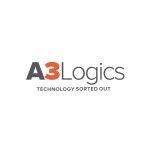Why are EDI Services Important for Your Business?
EDI standards are the globally accepted standards for business exchange which increase accuracy, efficiency and productivity. Organisations with traditional processes need help with errors, leading to increased time and costs. Be it healthcare providers or retailers to manufacturers, all rely on EDI service providers in USA for error-free and faster data exchanges. IBM believes that “EDI in its various formats will remain highly useful and widely used in its established areas for years to come”
An estimated 80% of large organizations and 40% of small and medium-sized enterprises (SMEs) use EDI for business-to-business communication.
Different Types of EDI Services
EDI software enables business partners to connect through various methods, depending on a company's trading partners' size, importance, and transaction frequency, and can be customized to suit specific needs. To find out more about the different types of EDI solutions that can come in handy are mentioned below.
Direct EDI/Point-to-point: Direct electronic data interchange (EDI) is a common strategy in retail for large businesses with frequent business with partners, offering control and requiring an EDI software platform that meets implementation protocol specifications.
EDI via SFTP, FTPS, FTP: SFTP, FTPS, FTP over VPN, and EDI Through FTP/VPN are all frequently used communication protocols for EDI transactions over the Internet. With the help of an EDI solution providers or directly through one of these, business partners can be connected.
EDI via VAN: The value-added network (VAN) is an alternative to direct EDI, used by businesses to exchange electronic commercial papers. VANs manage the network and provide mailboxes for enterprises to send and receive EDI documents.
EDI via AS2: AS2 is a network communications protocol that enables safe data transfer via the Internet. It is made up of two computers that communicate point-to-point across the internet: a client and a server. Using digital certificates or encryption, AS2 creates an “envelope” for EDI data that allows for safe internet transmission. Everyone can readily access this form of EDI.
Web EDI: Web EDI is an online transaction method that uses a paper-like form to input information, converts it into an EDI message, and transmits it using secure internet protocols like AS2, HTTPS, or FTPS.
Mobile EDI: EDI applications for mobile devices are gaining popularity due to security concerns and device size limitations, with Oracle's JD Edwards EnterpriseOne offering mobile EDI apps.
Outsourced EDI: EDI outsourcing, often known as EDI managed services, is a growing solution for businesses to outsource EDI environment management, as it integrates with back-office systems and eliminates the need for internal resources.
Indirect EDI: An indirect EDI transaction involves information exchange between an ERP and clients, suppliers, or third-party logistics service providers. The message is transmitted to the broker, who distributes it in various formats.
Checklist to Consider Choosing the EDI Services Provider
The following are a couple of focuses you ought to look at while picking an EDI support service:
- Custom-Driven and Responsive
- Organization Portfolio
- Transparency
- Adaptability and Asset Abilities
Conclusion
Businesses have many choices when selecting EDI solution providers for their organization’s needs. Depending on its size and nature, some may prove better suited than others. Hiring an EDI service provider offers various benefits to organizations:
- Better Efficiency
- Decreased Costs
- Improved Security
- Scalability
- Increased Efficiency
- Gained Understanding
For more details: https://www.a3logics.com/blog/know-different-types-of-edi-services-and-which-one-suits-your-business-better






Comments